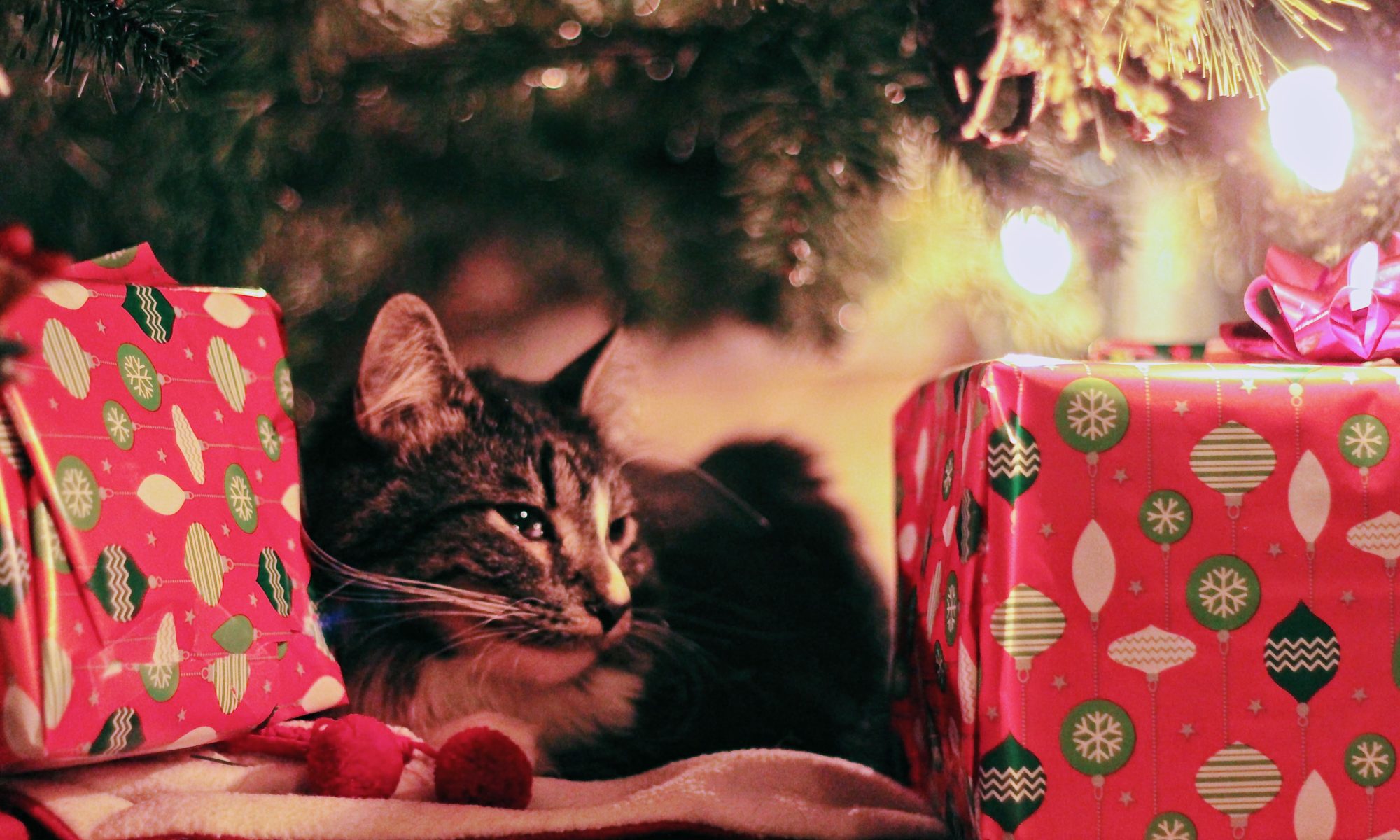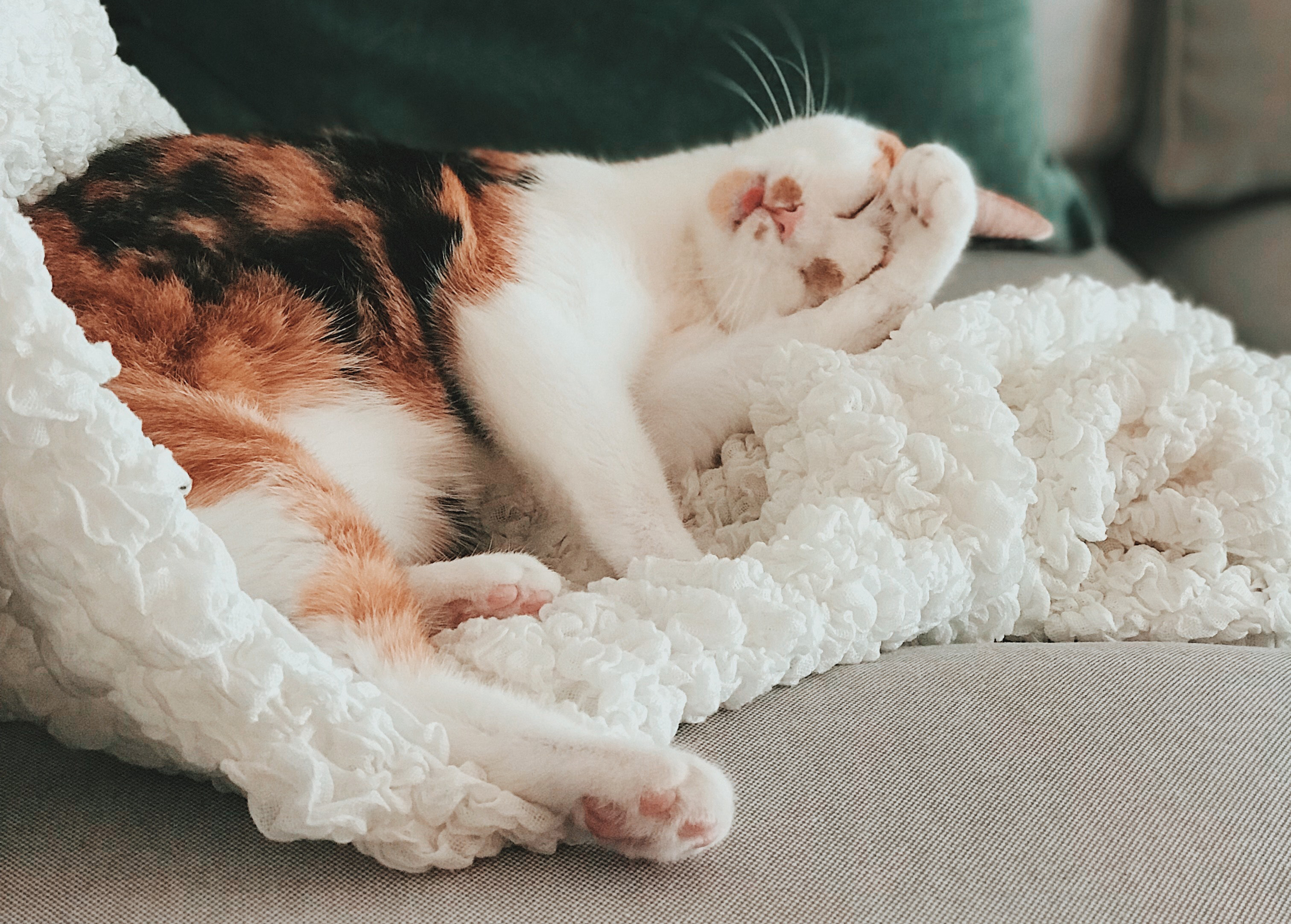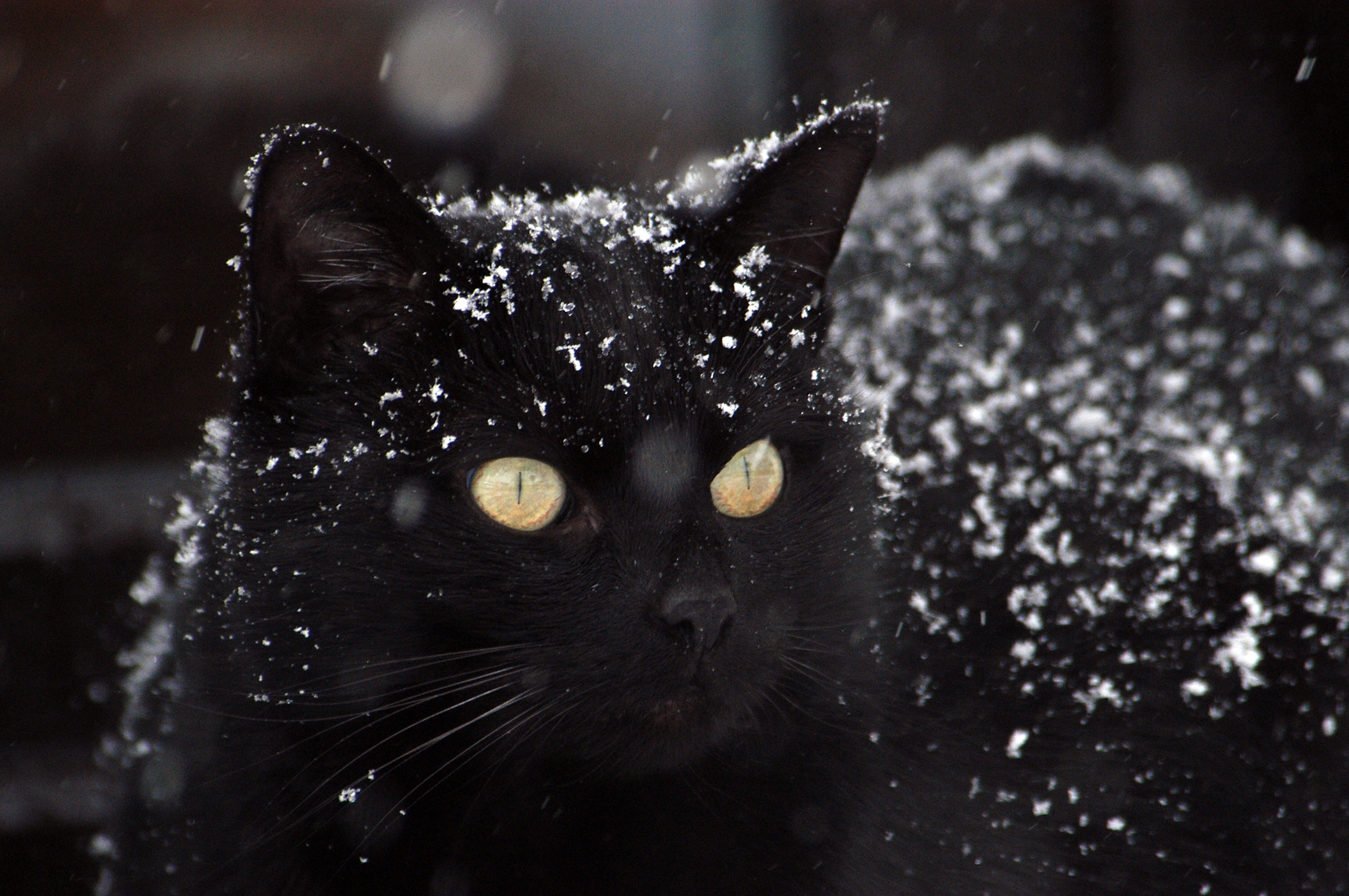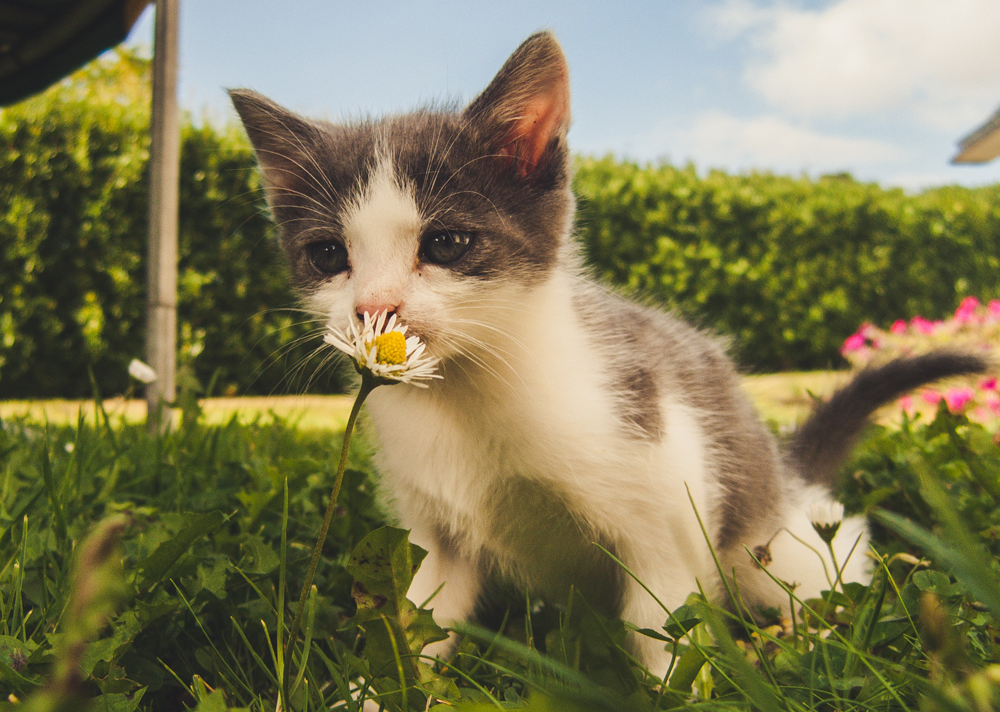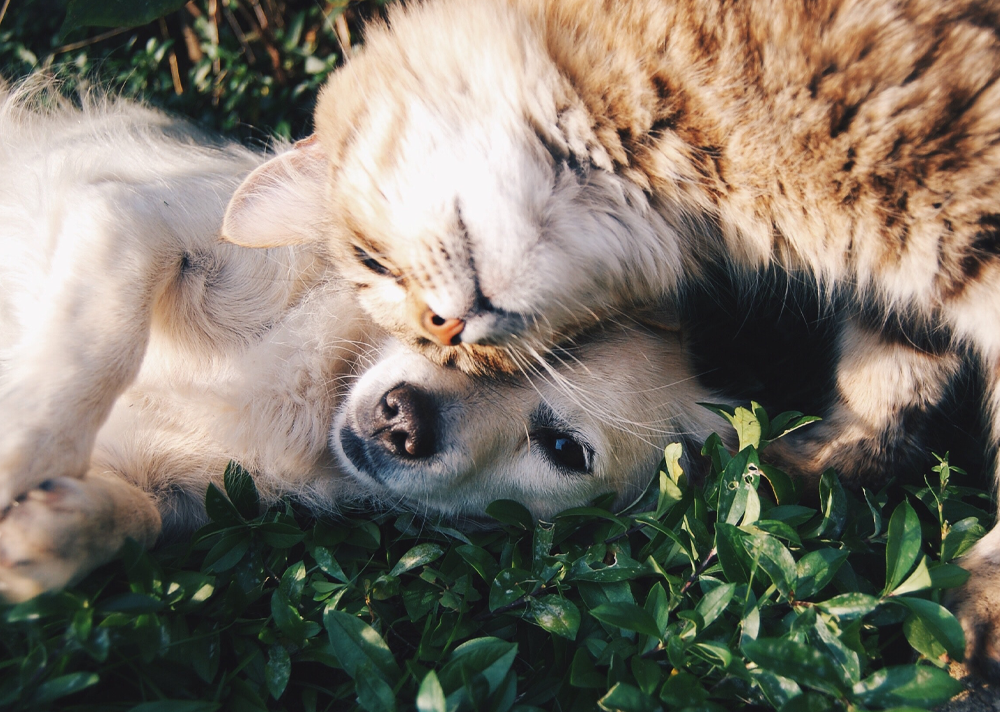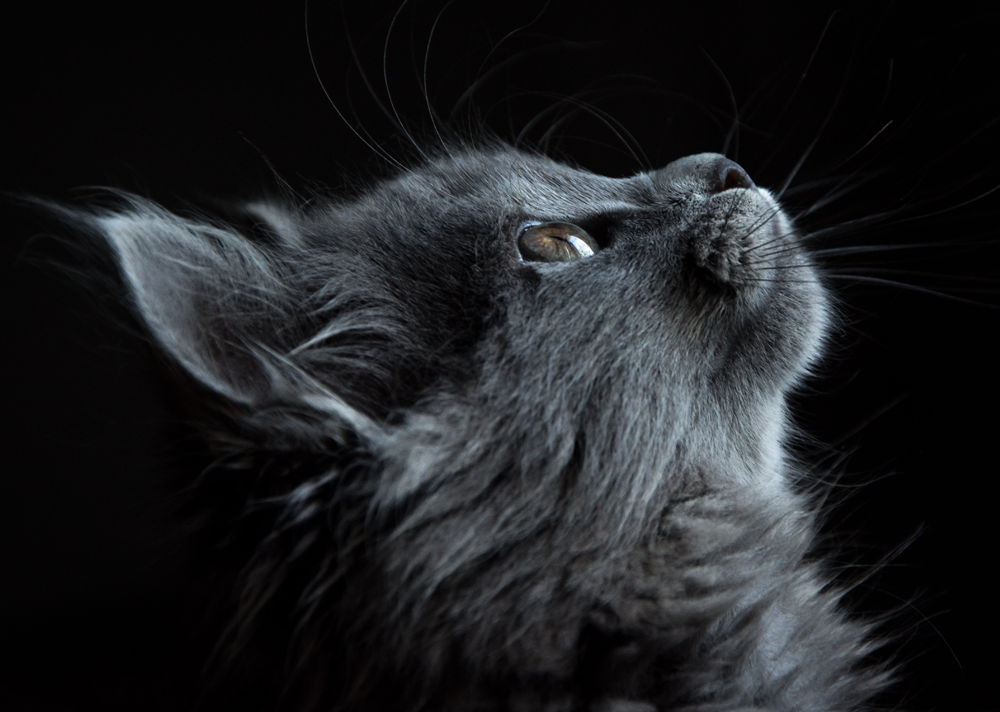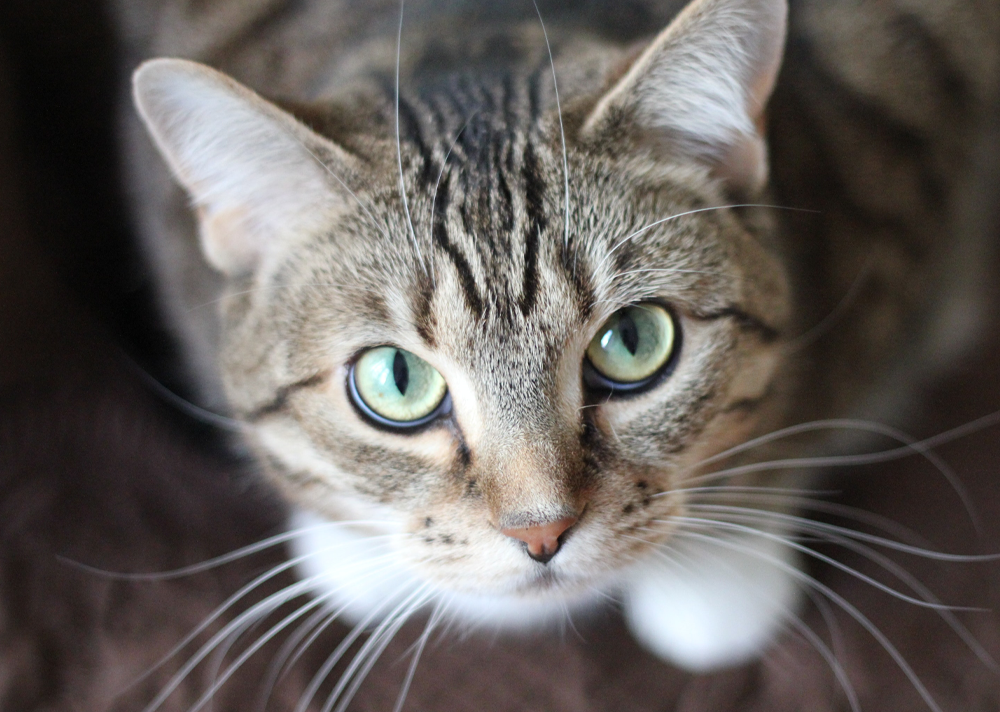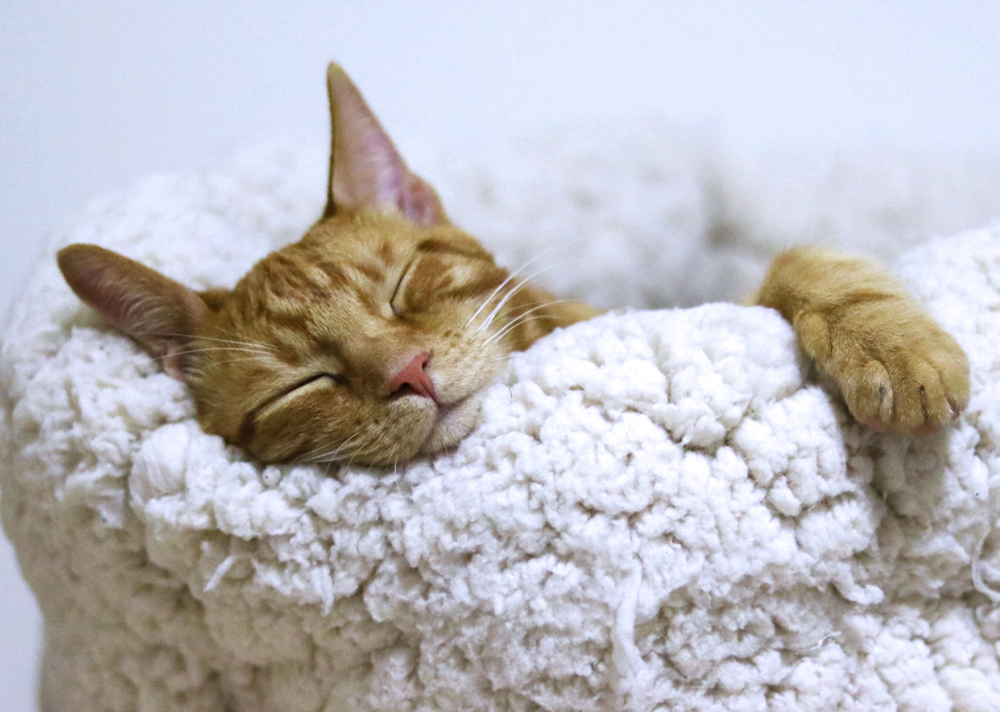As the calendar year approaches the holidays, you might have a lot on your mind. Perhaps you’re thinking about what type of pie to have at Thanksgiving, or maybe you’re wondering how big your Christmas tree needs to be to fill your place. If you’re a pet owner, especially of a cat, you know that they’re going to be near the top of your concerns. However, no matter how well of a cat aficionado you are, you may have forgotten one thing:
How do I keep my cat cozy during the holiday?
The winter weather will have a demonstrable effect on your feline friends, but there are many things to consider to make sure they are comfy.
Cats Sleep More During the Winter
The holidays fall around the same time that daylight outside becomes sparse. As a result, this can cause melatonin levels in pets to increase while serotonin levels to decrease. While the former leads to more lethargy or relaxation, the latter as a neurotransmitter affects mood regulation.
What does this mean for cats? More sleep! This is not to be a cause for concern, as sleeping is considered a show of being “content” with their surroundings. However, you can give your snoozy cat more light by placing their bed closer towards the window to get greater sun exposure.
Cats Eat More During the Winter
Not only does winter impact the sleeping pattern of cats, but it can affect their eating habits. The old adage of “eating more for winter hibernation” is not just for bears and other creatures in the wild. Cats increase their eating during his time in order to keep energized and warm during activity.
This is important to know if you’re concerned about your cats weight. Moderate your cat’s food intake during the winter to ensure that they are not overeating, and encourage more eating during the summer months when they are not as prone to eating as much. By tipping the “food scales” in this manner, you’ll allow your fluffy friend to keep a consistent weight right around the holidays.
Not All Cats Stay Warm During Winter
At first glance, you may think that a cat is able to survive against the harsh winds and snow of winter because of its fur. While this may be true for some cats, it definitely isn’t the gold standard for all. Cats with thicker fur will be able to handle it better, but species with thin fur will not be as lucky. This is especially true if they are “outside” pets or happen to find themselves out of the house.
To prevent your feline family member from getting hypothermia or other cold-weather ailments, consider keeping them inside at all times and blocking any exits that may get them out. Once inside, you can help keep them cozy with small sweaters or coats designed for them (provided the material does not irritate their skin). Not only will this add an extra layer of protection against cold temperatures, it allows your pet to take part in the holiday festivities!
Winter weather makes a wonder of us all, and that includes our pets. If you’re a cat owner and concerned about how the cold air will affect your little friend, don’t panic. By knowing how their sleep and eating habits will increase and what to do in case they do come across frosty temperatures, you can ensure that your cat will stay cozy through the holidays and beyond.
Sources:
https://www.petassure.com/new-newsletters/do-cats-get-cabin-fever-in-winter/
https://www.sciencedaily.com/releases/2014/05/140528114828.htm
https://www.purina.co.uk/cats/health-and-nutrition/grooming-and-daily-care/winter-cat-care

